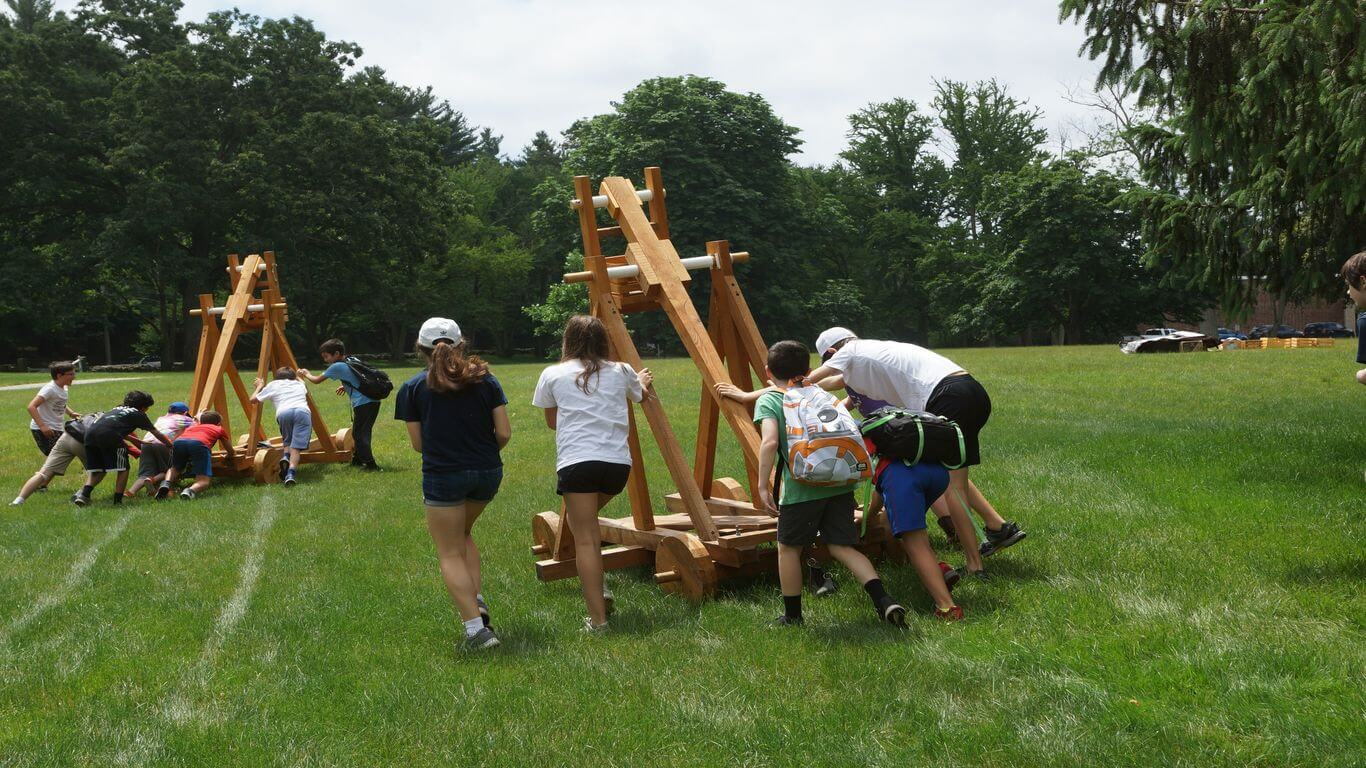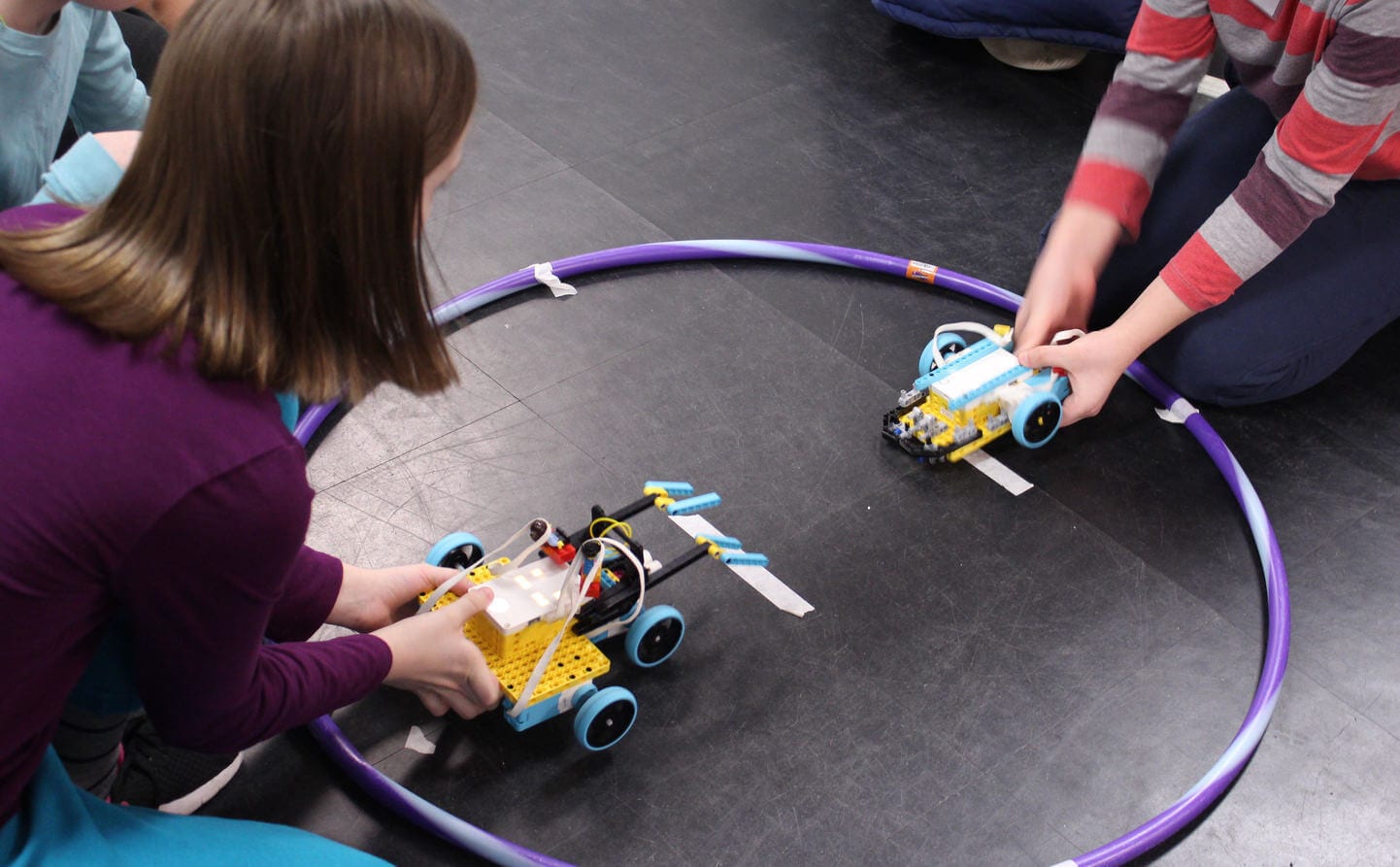Does your child love to tinker, design, and build things? Do they look at a problem and think, “How can I solve that?” Do they enjoy doing projects and working with their hands? Or, would you like your child to get some experience with engineering concepts and projects?
If you answered “yes” to any of these questions, you might want to consider an engineering summer camp or program. In these programs, young kids explore engineering through project-based learning and teens can experiment and prepare for taking on college-level classes.
Why engineering? The career outlook is good!
The U.S. Bureau of Labor Statistics (BLS) projects a strong job outlook and growth in engineering in the next decade. BLS forecasts that the largest number of new engineering jobs will be in the fields of civil, mechanical, industrial and electrical, with many interesting subdisciplines as well. The American Society for Engineering Education (ASEE) reports that the most popular engineering degrees are mechanical, computer science, electrical, civil, and chemical engineering. To learn more about studying engineering in college, the Engineering by the Numbers report published by the ASEE is an excellent resource.
Why should your child attend an engineering camp?
Most kids don’t know what field of engineering they’re interested in. That’s fine! Taking part in a summer program with an engineering focus gives students of all ages an opportunity to explore the field in-depth and learn about the principles and methods of engineering through creative hands-on projects, challenges, and problem-solving. This type of experiential, project-based learning can spark an interest in engineering in younger children and open your teen’s eyes to the possibilities of what they might study in college, and which schools might be a good fit, as well as giving them a chance to explore material that may not be offered in their high school.

What you’ll find here
The organizations featured here are keenly focused on providing kinesthetic-tactile learning, which is great for students who love to work with their hands and learn best by doing. Program participants will not only receive instruction, but they will also get a great deal of practical experience working on engineering projects and learning about the engineering design process. And in case this sounds too serious—these programs are a lot of fun, too!
There are engineering programs for all age groups, interests, and skill levels. You will find academically rigorous programs for high school students, where they are introduced to the principles of engineering design, interact with college faculty and industry professionals, and explore career paths. There are also camps and programs tailored to younger students, often teaching engineering through robotics, LEGO, and hands-on makerspace activities.
Choosing among programs
As you consider programs, reach out to the organizations and ask them about their curriculum and how their program is structured. What is their approach to teaching engineering and what types of projects will students be working on? Consider the options based on the subject matter and your child’s age and learning style, engineering experience, and particular interests. Note: the programs featured here are predominantly engineering-focused, but there are other STEM summer programs that incorporate aspects of engineering into their activities.

Engineering programs
The programs are listed alphabetically by organization. Visit a program’s website for information about curriculum, timing, cost, and registration or application details as you evaluate opportunities.
Acera School Summer STEAM Camp (Winchester) offers a number of engineering-focused programs for kids ages 5-14, emphasizing critical thinking and creative problem solving for all types of learners and thinkers.
Boston Leadership Institute (Boston, Waltham + Wellesley) offers engineering programs in robotics, biomedical engineering, architecture, and more, all of which require students in grades 6-12 to develop advanced critical thinking skills and techniques. Application required for some programs.
Boston University’s College of Engineering U-Design (Boston) is a hands-on engineering summer program for students entering grades 6-9. Students learn about the engineering design process and experiment, design, analyze, build, and test to solve challenging problems.
Boston University’s Summer Challenge (Boston) is a two-week residential program for students entering grades 10-12. Seminars in electrical engineering and computer science are offered, along with many other STEM options. Classes are hands-on and project-based, giving students the chance to explore college-level material in a supportive environment. Application required.
Edge on Science (Gloucester+ Newton) offers project-based programs in applied science and engineering for students entering grades 3-12. Lead instructors are engineers, scientists, or scholars. Choose from catapults, rockets, bridges, hydraulics, drones, and more. Students develop skills in design, problem-solving, building, simulating, testing, and teamwork.
iD Tech (multiple MA locations) offers summer programs in various engineering topics, including robotics engineering and 3D printing. Day and overnight programs are available for ages 7-18.
Lavner Education (Boston + Wellesley) offers a variety of engineering programs, including robotics engineering, 3D printing, and LEGO building for ages 6-14.
LetGOYourMind (multiple MA locations) encourages creativity and teamwork through LEGO building projects for students ages 4-13. Teachers lead groups in guided STEM-related building projects where kids experience the engineering process.
Lincoln Laboratory Radar Introduction for Student Engineers (LLRISE) (Lexington) is a free two-week residential hands-on workshop teaching rising seniors how to build small radar systems. Instruction is provided at MIT Lincoln Laboratory. Application required.
MIT’s Women’s Technology Program (WTP) (Cambridge) is a rigorous four-week academic and residential experience where high school students explore engineering through hands-on classes, labs, and team-based projects in the summer before their senior year. Application required.
Northeastern University’s Accelerate: Pre-College Programs (Boston) enable rising juniors and seniors to engage with Northeastern faculty, utilize labs and facilities for cutting-edge projects, visit area companies in related fields, and attend lectures by accomplished professionals. Programs include bioengineering, engineering innovation and design, and physics, amongst others. Application required.
Play-Well TEKnologies (multiple MA locations) offers LEGO-inspired engineering camps for grades K-8. Kids build elaborate objects, structures, and vehicles while exploring fundamental principles of engineering and physics.
The Robo Hub (Cambridge, Brookline, and Lexington) ignites a passion for innovation in K-12 students through hands-on robotics, coding, and engineering programs. The Robo Hub offers specialized, immersive summer camps like Aerospace, BattleBots, and Robot Explorers. Campers explore cutting-edge technologies, build and program robots, design creative solutions, and develop essential teamwork and problem-solving skills, preparing them to become future leaders in STEM.
Tufts University Pre-College Programs (Medford) offer a variety of opportunities for ambitious high school students entering grades 10–12 to get college-level experience in various engineering fields, including civil, environmental, electrical, and mechanical. Application required.
UMass Amherst’s Summer Pre-College Programs (Amherst) are designed for students in grades 9–12 interested in hands-on learning experiences. The Summer Engineering Institute is a 2-week intensive that introduces high school students to several branches of engineering, including biomedical, chemical, civil, computer systems, electrical, environmental, industrial, and mechanical engineering through lectures, discussions, and labs. Application required.
Wentworth Institute of Technology’s ImpactLab program (Boston) is an innovative two-week or four-week summer residential experience in the heart of Boston. Open to all rising 11th or 12th-grade students, this hands-on experience provides students with the opportunity to preview college and explore topics in engineering, design, science, or entrepreneurship in Wentworth’s state-of-the-art labs and studios.
Worcester Polytechnic Institute (WPI) (Worcester) offers summer academic programs across a wide range of STEM disciplines, including engineering, for students in grades 9–12. WPI’s programs encourage students to explore their interests and try something new while developing leadership and collaboration skills. Some programs require an application.







